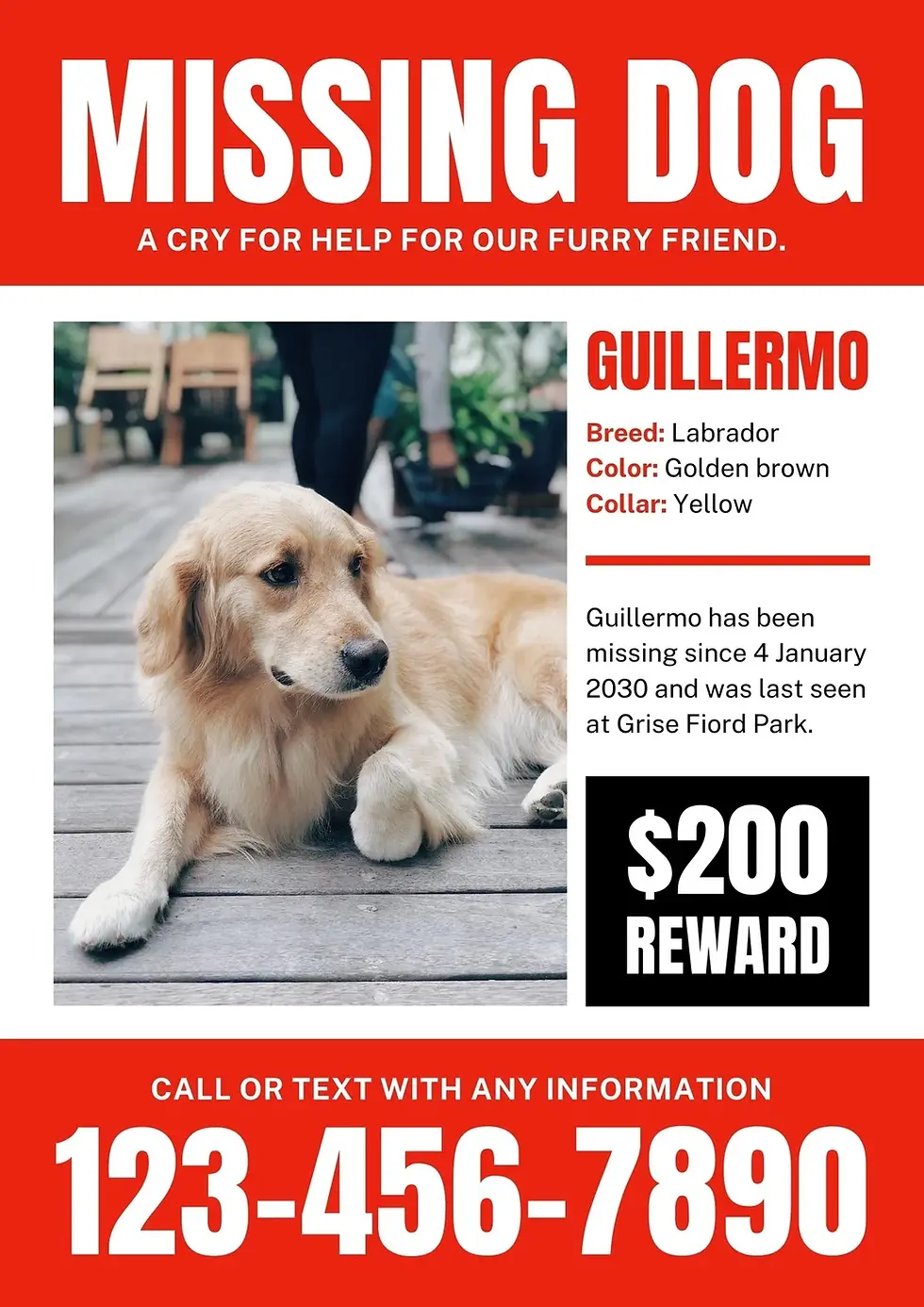Help me potty train my dog!!!
- Nichole Petrie

- Jan 25, 2014
- 3 min read
Please help me potty train my puppy!!!
This is the MOST common problem. You bring home your puppy and get so excited over the newness and

cuteness that you may inadvertently forget to do the MAIN things to help get your puppy settled.
Potty training is one of the first things that you should get started with IMMEDIATELY! When you first bring home your puppy and are outside with them, bring treats along with verbally and physically praising them when they eliminate (relieve themselves) outside. They will start the association with "go potty outside and I receive treats".
Puppies need to eliminate every 1 to 2 hours from the ages of 6 weeks to 5 months. And depending on size and breed you will need to keep a mental note or set a timer to remind yourself to LEAD (do not carry, walk with them) your pup outside to go potty. Every time they go potty outside PRAISE them with verbal and physical praise along with a treat or two.
How to deal with accidents in the home
First and foremost DO NOT rub your dogs nose in the spot they had the accident. DO NOT spank or be physical with your pup. This will only teach them to find somewhere else in the home to eliminate where they cannot get CAUGHT. This is usually our first reaction. As a human you express your disgust with your pup over the accident. Keep in mind they are in TRAINING and are still learning. Simply pick up the feces with a paper towel or wipe up the urine with a paper towel lead your pup outside. Place the feces and urine on the grass and say "Potty outside." Have you pup sniff the grass and the feces and urine. This will help them understand that the grass is where they are to eliminate. Then assertively and calmly walk back in the home and close the door behind you. Your pup will try to follow, make sure they do not enter the home. Keep them outside for up to 15 minutes. Watch over them and if you witness them 'go potty' while they are outside, go outside and praise them for doing so and allow them back in the home. Keep a potty log by the door of when they go potty. Lead them back outside when the time is up so they can relieve themselves again.Puppies need to relieve themselves every 2 hours.
Routine
Setting up a schedule of when to feed & give water will help with having less to no accidents in the home. This will help you know exactly WHEN they will need to 'go potty'.
Puppies eating and given water three times a day and should be taken outside roughly 10-15 minutes after they have eaten. Its best to keep them outside until you witness them 'go potty'.
All adult dogs should be on a feeding schedule as well. Eating twice a day, you will know when they will need to relieve themselves. Taking away water by 8pm, last chance to go potty by 11pm the latest will keep your floors from accidents in the night. Have fresh water ready by 9am.
Apartment living
Do the same ritual but keep your pup on the leash and stand outside with them until they eliminate. If they don't eliminate(due to them fully relieving themselves in the home). Make a mental note of when they had the accident and take then back outside 1 hour after the accident so they can go potty outside then praise and treat them. If you work and do not have the time to potty train during the day, crate train your pup. However you will need to have someone come in and let them relieve themselves every 2 hours outside. If need be take your pup to a reputable Doggy Day care where they can get exercise and help with potty training.
Cold Weather
In times of cold weather do the same ritual. But only leave your pup outside for up to 10 minutes and stand with them outside as well. If its too cold purchase puppy pads and place them in the garage, laundry room or near the outside door for them to get the feel on NOT eliminating near bedrooms, living rooms, family rooms or kitchens. This will help to give them the sense they must go elsewhere to potty. Treat them when they use the puppy pads.
This is a task that can NOT be ignored. It must be done in order to keep your carpets and floors clean along with keeping your sanity from having a puppy.
**Reminder: Every dog and household is different. What may work for others may not necessarily work for you and your dog. If you are having continuous problems, find a local trainer in your area that can help you and your family.**




Comments